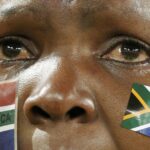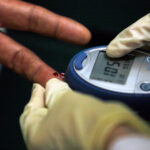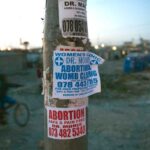Restrictions hit the movement of a million or more Sierra Leone citizens living in five districts worst affected by the disease.
Every district in Sierra Leone is now affected by the Ebola virus, according to the international aid organisation Medècins Sans Frontiérs (MSF).
The capital, Freetown, and areas of Port Loko, Bombali and Moyamba have become hot spots for the disease, MSF said in statement on Tuesday.
According to figures from the ministry of health and sanitation in Sierra Leone, there were more than 1 700 new confirmed cases of Ebola in October alone.
Five of the worst affected districts in Sierra Leone have been placed under quarantine by the government with checkpoints on roads to prevent people from leaving the area.
MSF estimates that these measures affect between a million and two-million people.
Inadequate resources hamper the government’s response; there is “no strong surveillance system in place, while up to 85% of calls to the national telephone line get no response,” said MSF.
The high number of deaths from Ebola has, according to MSF, led to an increase in the number of orphans in the affected countries. Preliminary figures from the United Nations Children’s Fund (Unicef) estimate that more than 3 700 children in Guinea, Liberia and Sierra Leone, the three countries hardest hit by the outbreak, have lost one or both parents to Ebola since March.
Unicef says that many of these children are being rejected by their surviving relatives. “Fear and stigma are still rife in communities, with many believing that Ebola is fatal and that going to a treatment centre will not help,” said MSF. “Meanwhile, health workers, survivors and discharged patients are facing stigmatisation by families and communities.”
According to the World Health Organisation (WHO), about 5 000 people have died from Ebola while more than 13 000 cases have been reported.
WHO had earlier estimated that the number of Ebola cases in the “most affected countries … could reach 10 000 cases a week by December”.
The National Institute for Communicable Diseases reported that there were no suspected or confirmed cases of Ebola in South Africa. Last week a KwaZulu-Natal man who returned from Sierra Leone tested negative for the disease.

Ina Skosana was a health reporter at Bhekisisa.





